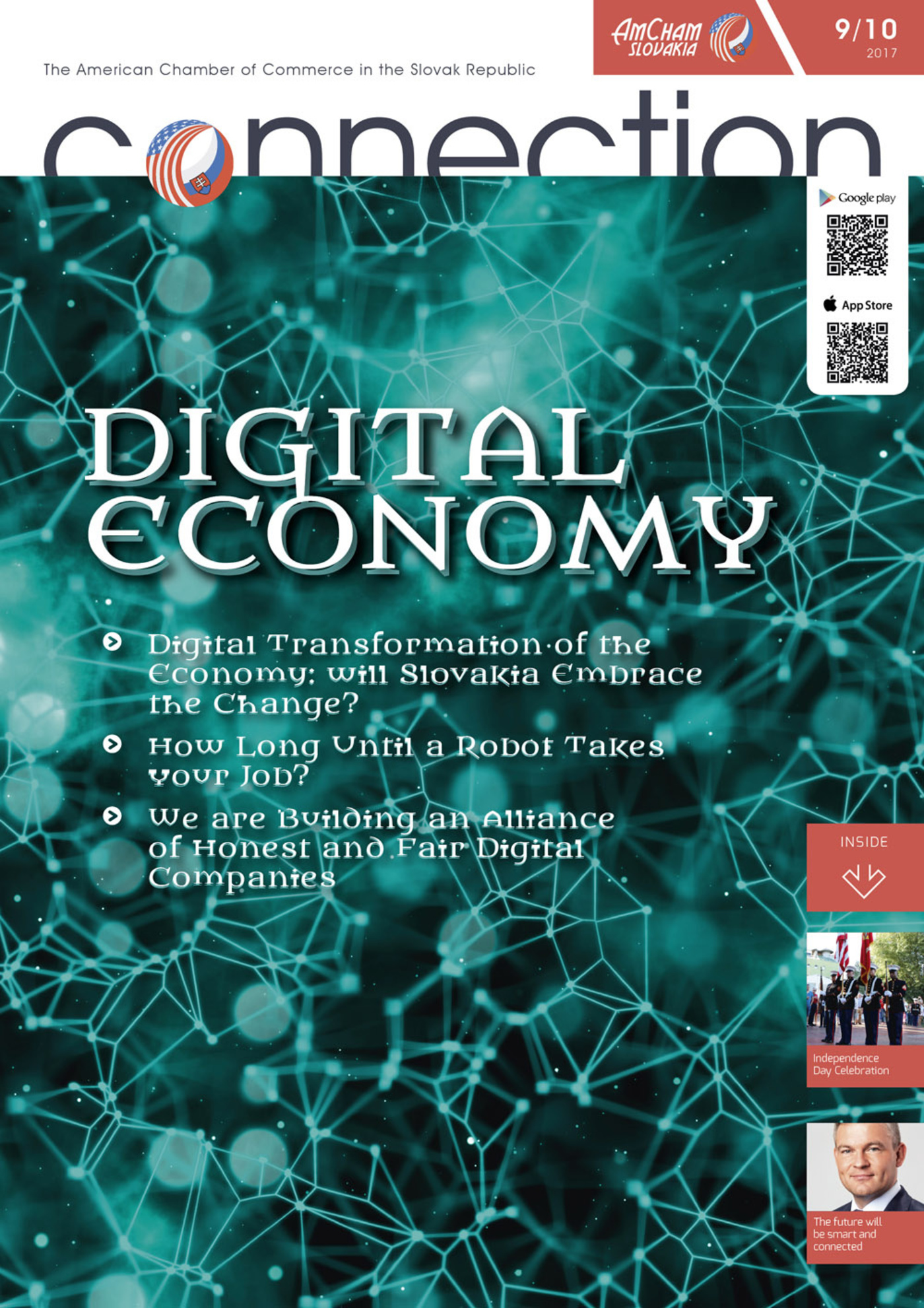Slovakia is a world leader in car production and has successfully integrated itself into the modern world. However, technological innovations such as vehicle connectivity, robotics, sensor technology, IoT, the Cloud, Big Data, and Industry 4.0. have changed the game. The future will be smart and connected, that is for sure. To stay competitive as a country, it is necessary to predict changes and prepare for the future. Small countries must be open to innovations. Digital transformation is not an option – it is a must. The goal of politicians and of businesses must be to use the opportunities this digital transformation brings and minimize its risks.
Policies that lead to more adaptable, dynamic and open economies are the solution. We must be bold when seeking to unleash the potential of digital innovations and when intervening to remedy obvious dysfunctions.
To create more adaptable digital economies, laws and regulations cannot prevent businesses from growing or forbid them from deploying a new technology. Politicians have two essential tasks – to set the rules for the digital age and to modernize public services using digital technologies. It is not an easy task, but we must do it very soon. We must support new and ever more challenging digital innovations.
Slovakia is a small country with great ambitions. Given its size and human capital, Slovakia has the potential to become a test lab for new innovative ideas in IoT, healthcare and data processing. We are ready to design different pilot projects in cooperation with business. The Slovak government is assisting with the building of a platform that connects third-party service providers with citizens and businesses. The principal focus is on services for businesses, as smart services are the best way to reduce the administrative burden in such a dynamic world.
Policymakers should also motivate businesses to think of new ways to employ humans. Computerization and modern production have created new types of jobs with higher salaries, but also higher skill requirements. The workforce will need to be able to work with these technologies. Therefore, we need to make sure that we are building the knowledge and skills today for the jobs of tomorrow.
To create more dynamic digital economies, the new regulatory framework needs to promote dynamism and innovation. The current framework must be adapted across Europe, as currently it is time-consuming and out-dated. The goal is to embrace the pace of technological and market innovation. The sharing economy is on the rise – people can sell their services online, rent their houses and become taxi drivers. The governments must embrace the sharing economy, not fight against it. The legal approach needs to be flexible to deal with any new legal challenges that may arise.
To create more open digital economies, our policies must support the free movement of people, capital and data. Data is the fuel of smart machines and has become a strategic resource in the digital economy. We need to ensure access to data for all businesses that want to innovate. Government IT platforms must be open and provide open data and interfaces. New opportunities will arise for those who have the skills to offer new value-added services. But we also need to protect our citizens and ensure their privacy is not misused. The goal of our public sector reform will be to transform Slovakia into a “data-driven state” by 2020.
We, the politicians, must ask our citizens what kind of future they want to live in and then ensure that our common public-private effort is leading us in the right direction. Digital transformation requires vision, political courage, commitment and multi-stakeholder coordination.
Those who do not look to the future risk not being part of it. It is difficult to imagine where Slovakia can move in the field of digital economy and innovation in a few years. We should concentrate on the path on which Slovakia will start to create unique added value.
Peter Pellegrini, Deputy Prime Minister for Investments and Informatization of the Slovak Republic



Follow us